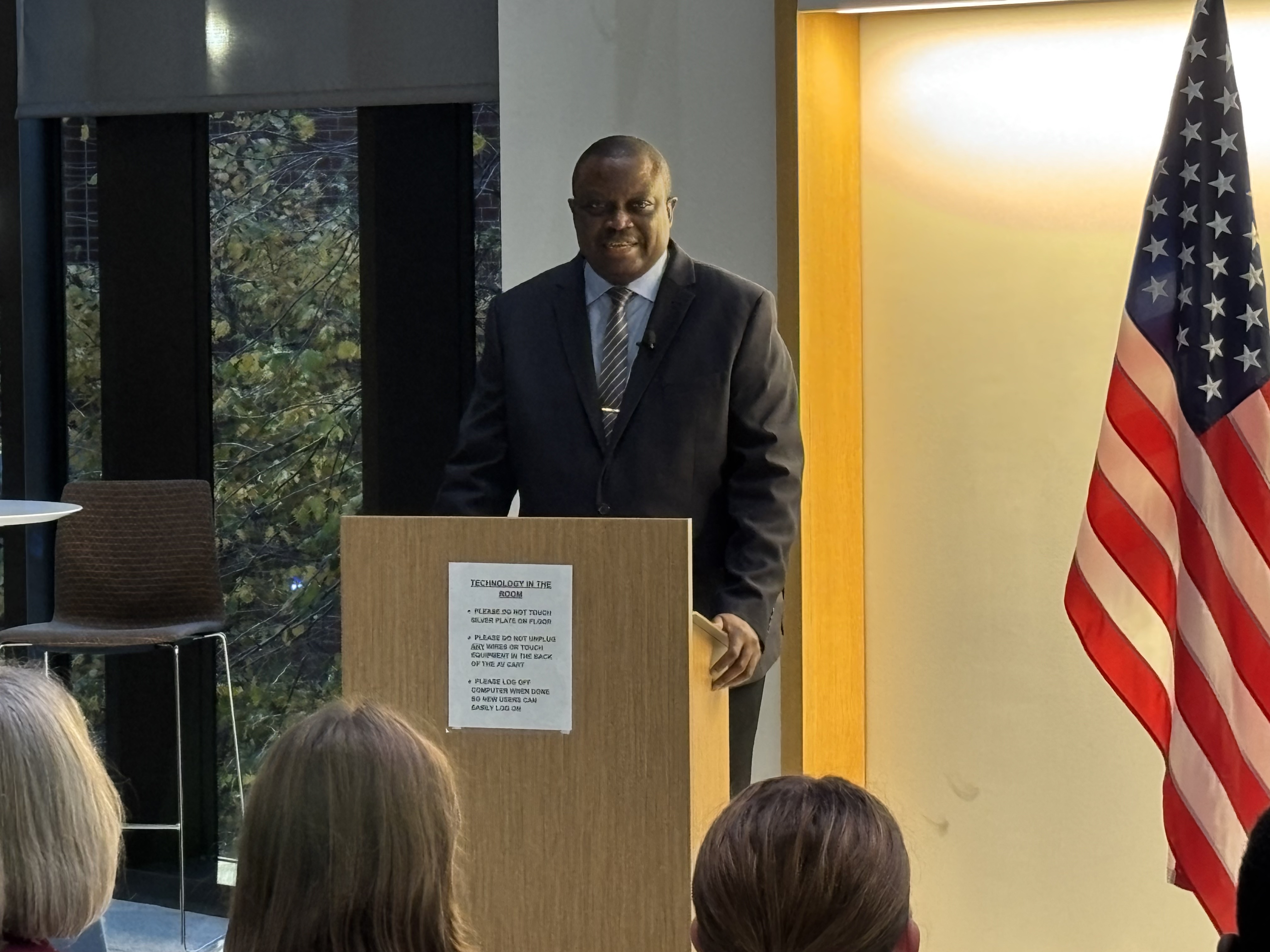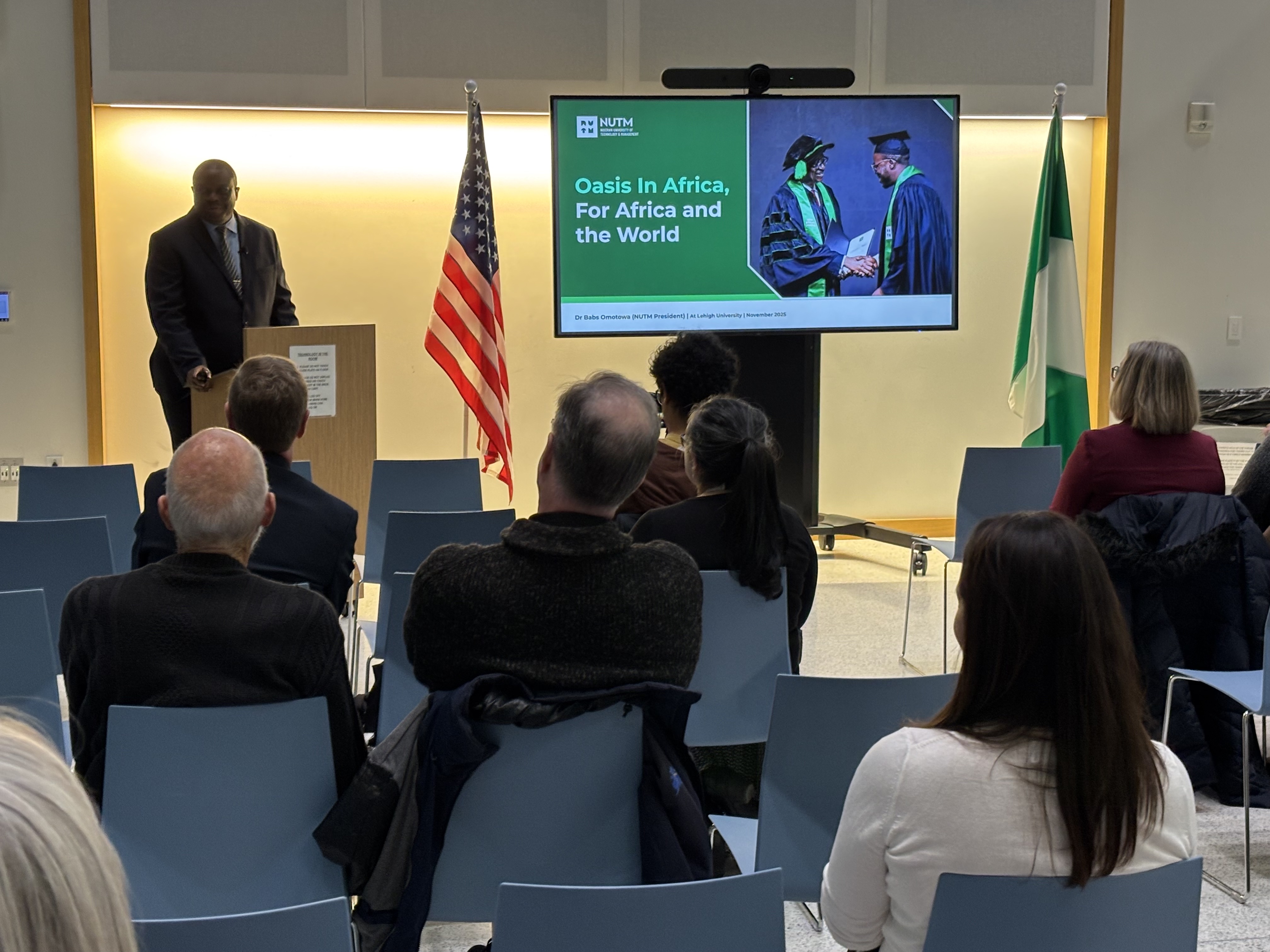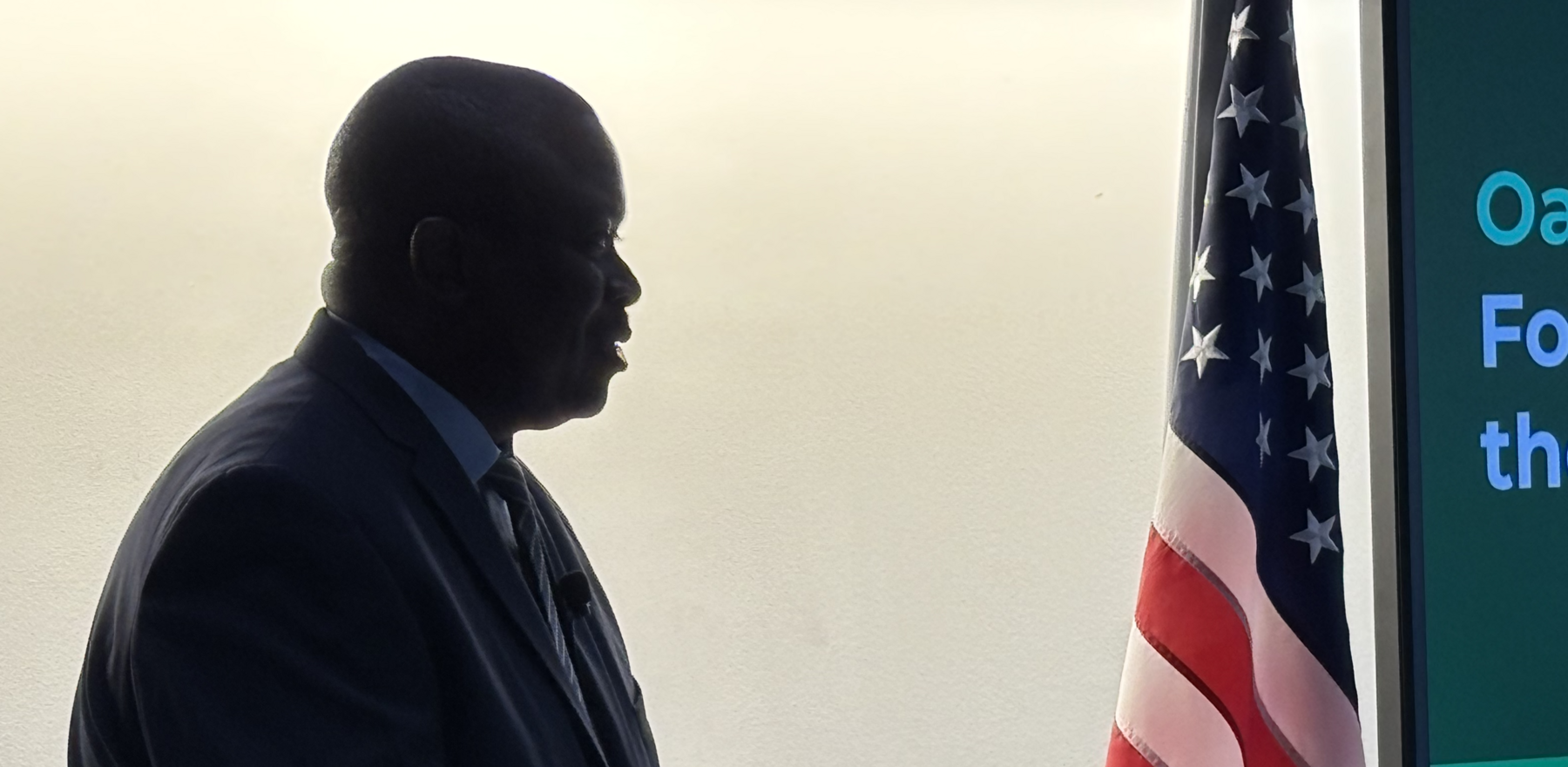Nigerian higher education leader Babs Omotowa shared his vision for building a world-class university in Africa that empowers the continent’s next generation of innovators and leaders during a talk at Lehigh University’s Iacocca Global Leaders Speaker Series.
When Babs Omotowa took the stage at Lehigh University this week, he shared a bold vision for the future of higher education in Africa: one grounded in innovation and leadership, aimed at equipping graduates with globally competitive skills to reverse the continent’s migration of talent and spur economic transformation.

“Our goal is to build a Top 50 worldwide university in Africa,” Omotowa said. “That’s quite a huge ambition, but that’s the quality of what we’re seeking to build.”
Babs Omotowa, founding president of the Nigerian University of Technology and Management (NUTM), spoke at Lehigh on Nov. 10 as part of the Iacocca Global Leaders Speaker Series, hosted by the Lee Iacocca Institute for Global Leadership. His talk was entitled, “Oasis in Africa, For Africa and the World.”
A leading voice in higher education and innovation in Africa, Omotowa has a proven record of success across various industries, including education, energy, manufacturing, technology, and banking. He has led NUTM since the university’s inception in 2019.
“Not many people have the good fortune to be part of building a new university, so I can count myself fortunate,” Omotowa said. “It’s important to remember: every time you think of a problem, it's actually an opportunity.”
A fast-growing population
During his visit to Lehigh, Omotowa described how NUTM’s academic model reimagines higher education in Africa through its Technology, Entrepreneurship, and Design (TED) framework, an interdisciplinary approach that blends STEM learning with management, design thinking, and hands-on projects in partnership with African companies.
Omotowa said NUTM maintains close partnerships with major companies through industry councils that review its curriculum, ensuring students gain not only technical knowledge but also the professional and ethical skills employers demand.
Africa’s population is expected to grow faster than any other region in the world in the coming decades. By 2050, the continent will be home to roughly 850 million young people, or about 40% of the global youth population. Yet, Omotowa said, no African university currently ranks among the world’s top 250 higher education institutions.
“What we were seeing is, increasingly, the quality of those universities in Africa have been sub-par,” he said. “Young people who want access to a quality education have had to leave the country for the U.S., Europe, and other parts of the world, and most of them don’t return.”
Omotowa attributed the challenge to several factors, including outdated curricula, limited industry linkage, inadequate infrastructure, and uneven faculty quality. He said NUTM’s vision is to cultivate a new generation of African innovators and leaders capable of driving sustainable growth and global competitiveness.
Remarkable early results

NUTM has already begun to see remarkable results. Of its 165 graduates, 97% were either employed within three months of completing the program or had launched their own ventures, Omotowa said. Among those working in the corporate sector, average salaries increased 600% compared to their previous earnings.
Additionally, 45% of graduates continued the entrepreneurial ventures they started at NUTM, spanning industries such as health care, agriculture, fintech, and insurance. These ventures have created more than 700 jobs and raised over $3 million in funding, Omotowa said.
The university’s model—emphasizing employability, entrepreneurship, and real-world impact—has drawn global attention and parallels the success of India’s Ashoka University, a partner institution through Lehigh’s Global Partnerships & Strategic Initiatives (GPSI) office.
Looking ahead, NUTM plans to expand from its pilot phase to a 10,000-student residential campus and a digital platform serving up to half a million learners across Africa by 2030.
Visiting Lehigh University
Omotowa spent the full day at Lehigh University before his talk, meeting with Lehigh President Joseph J. Helble ‘82 and having lunch with nearly two dozen Nigerian graduate students, including members of the Lehigh University Graduate Association of Nigerian Students (LUGANS).
He also met with various Lehigh officials to discuss partnership opportunities, including representatives of Lehigh’s Office of International Affairs (OIA), Office of Creative Inquiry, and P.C. Rossin College of Engineering and Applied Science.
Before entering higher education, Omotowa held senior leadership roles in the international energy sector, including with Shell International and Nigeria Liquefied Natural Gas. He now applies decades of experience leading global organizations and building public-private partnerships to NUTM’s mission of transforming higher education and leadership development across the continent.
The Lee Iacocca Institute for Global Leadership prepares current and future leaders to take on complex, multi-system, global challenges through applied research, dialogues with subject-matter experts, and experiential learning programs. Grounded in the praxis of systems thinking and idealized design, the Iacocca Institute embraces an interactive approach to problem solving and the conviction that we are better together.
The Institute and GPSI are part of OIA, which seeks to position Lehigh as a premier destination for the world’s best students, ensure all students have access to international education experiences, and prepare Lehigh community members to be global learners, citizens, and leaders.
Lehigh University added and deepened international partnerships across four continents this past year through research collaborations, mobility programs, and exchange pathways with more than 40 global partner institutions with which Lehigh has formalized agreements, according to the 2024-25 Partnerships Activity Report.
